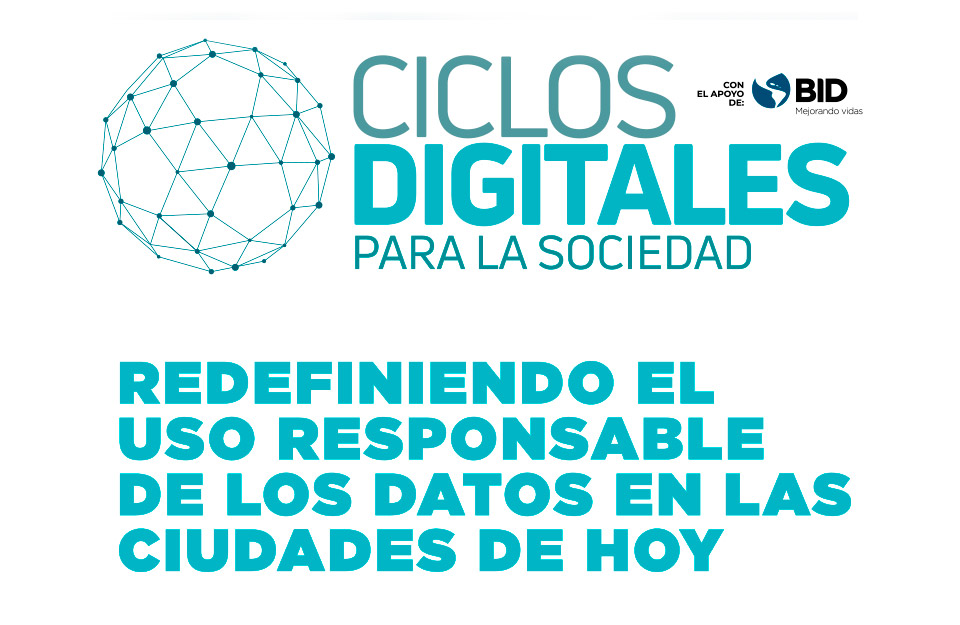
There is no doubt that in a global context marked by the health emergency due to the coronavirus pandemic, all productive sectors, government, education and health, have turned their strategies to digital, generating a profound impact on the way they operate in the present and in the future.
Understanding this shift towards digital, Fundación País Digital, together with Imagen de Chile and Universidad Del Desarrollo, and with the support of IDB Chile, generated the digital meeting "Ciclos Digitales Para La Sociedad: Post COVID-19: Nuestro nuevo presente digital", which began with the reflection of the president of Fundación País Digital, Pelayo Covarrubias, on the opinion column written by the Israeli writer and historian, Yuval Harari, which analyzed the possible changes in all spheres of society, post pandemic.
The discussion, which is part of a series of conversations of Fundación País Digital, opened a dialogue with representatives of the public-private world on the challenges facing the economic, productive, social, educational and health sectors after facing the pandemic.
In this regard, Pelayo Covarrubias indicated that "to speak of a post-COVID-19 scenario is uncertain in times like these; undoubtedly the world is changing and we must keep pace with it. In this sense, the role played by companies, organizations and public institutions is vital to be able to respond not only to the adaptive needs of the country, but also to the survival of all actors in society. Today more than ever, the articulation between the public and private worlds is key, generating benefits at both the economic and social levels".
Constanza Cea, Executive Director of Imagen De Chile, pointed out that "this crisis is teaching us that we must all collaborate and each person, from his or her specialty, has a very important role to play. As Imagen de Chile we wanted to create this space for conversation with País Digital because it is vital to think about the country that is going to wake up after this crisis. We want to prepare ourselves so that Chile can get up as well as possible through talent, creativity, entrepreneurship and innovation capacity, always with collaborative responsibility".
An adverse analysis was given by Carolina del Río, Director of Falabella S.A.C.I., where she expressed her concern about the "humanitarian crisis that has already begun", stressing the possibility that in three more months, the country will find itself in a scenario where "funds will run out, poverty and famine will increase, and that is where we have to be united and together to be able to fight this crisis". He also highlighted the importance that digitalization has today in the socioeconomic field, stressing that "here we see that we are an unequal country, the connection is absolutely unequal, there is a huge gap in which we have to continue working and stop".
In this context and following the line of some hypotheses of Harari post coronavirus such as the restructuring of the labor market and change in the economy of the future, due to the implementation - "massive experiment" in the words of the historian - of Home Office or Telework, Yolanda Martinez, IDB Representative in Chile, said that "within the concept of labor reconversion, it is undoubtedly key to continue promoting the development of digital skills in workers. In this sense, it is extremely important to find a balance, where not only collaborators are allowed to work from home, but also that they do not lose the interaction with others, so it is important to enable collaborative spaces 'Cowork' and continue with the work balance".
David Gallagher, Chilean Ambassador to the United Kingdom and Founder of ASSET-Chile S.A., commented that "COVID-19 has made a much more serious problem disappear, which is the social explosion", to which he added the intention that the country can "unite around a great 'Marshall Plan' to lift a very large percentage of the population out of poverty". On the other hand, he said that the digitalization and teleworking tools implemented almost a month and a half ago in Chile, will help "more women to enter the labor market and double their household income and cause a positive impact on inequality and income".
This Ciclo Digital Para La Sociedad, was attended by Cristián Lefevre, President EY Chile; Eduardo Valente, Leading Consulting Partner, EY Chile; Mauricio Ríos, General Manager of everis Chile; Claudio Hohmann, Former Minister of Transport and Telecommunications; Thierry de Saint Pierre, President ACTI; Alfonso Swett, President of the National Council of the Confederation of Production; Alejandra Mustakis, President of ASECH; Mónica Retamal, Executive Director of Kodea; Carolina del Río, Director of Falabella S.A.C.I; Iván Vera, Founder and President of Innspiral; David Gallagher, Chilean Ambassador to the United Kingdom and Founder of ASSET-Chile S.A.; Claudio Muñoz, President of Aguas Andinas; Carolina Altschwager, Executive Director of Almabrands; Álvaro Fischer, Executive Director of Resiter and Fernando Reyes Matta, Director of the Center for China Studies, Universidad Andrés Bello.






